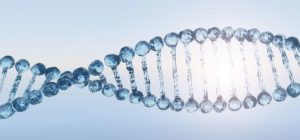Is there a connection between resveratrol, anti-aging, and cancer? Read on to find out what researchers have to say about this compound.
RELATED: What Is Senescence? An Overview Of Senescent Cells And Biological Aging [INFOGRAPHIC]
In this article:
- What Is Cellular Senescence?
- Effects of Cellular Senescence
- Causes of Cellular Senescence
- What Is Resveratrol?
- Resveratrol and Cellular Senescence
- Other Benefits of Resveratrol
- How Resveratrol Affects Cancer Cells
- How Resveratrol Affects Normal Cells
Resveratrol: Anti-Aging and Anti-Cancer Effects on the Human Body
We discuss the effects of resveratrol on cell processes that affect the aging process and development of cancer cells based on the research review published by Shahid Beheshti University of Medical Sciences.
What Is Cellular Senescence?
Cellular senescence is the irreversible cycle and replicative arrest among all types of cells. When this happens, the cells remain metabolically active, but they are no longer capable of dividing.
The process of cellular senescence often occurs through oncogenic stimuli. This includes persistent genomic or telomeric damage, powerful mitogenic stimuli, and tumor suppressor gene/oncogenic activation.
Oncogenic Definition: The growth and development of either cancerous and non-cancerous tumors
Mitogenic Definition: Stimulation of cell division using a small protein or peptide
Telomeric Definition: Referring to events at the end of every chromosome
Genomic Definition: Pertaining to the genes in an organism
Effects of Cellular Senescence
Note that cellular senescence has both positive and negative effects on the body. It induces skin and body inflammation as well as damage to the normal tissue structure. Also, cellular senescence is a process that naturally occurs as one age.
On the other hand, its positive effects include preventing the spread of cancerous cells. Therapy-induced senescence is a way professionals stop cancer cells from spreading.
Since the cells simply remain metabolically active but are incapable of dividing, the cancer cells may not spread throughout various parts of the body. This gives the patient enough time to undergo the necessary treatments.
Causes of Cellular Senescence
Different nutritional, dietary, and lifestyle factors affect the way cellular senescence activates. Variables we can’t control such as aging and genetics also play a vital role.
What we need to understand is how diet changes, potent antioxidant and vitamin supplements consumption, and polyphenol (resveratrol) supplementation affect the process. Knowing the effects may help us use cellular senescence to reverse signs of aging (such as aging skin), fight premature aging, and even combat diseases such as cancer.
What Is Resveratrol?
Resveratrol is a natural phytoalexin linked to the prevention of various chronic and age-related diseases such as cancer, diabetes, body inflammation, and high blood pressure levels. This polyphenolic compound is found in over 70 different plant species, including legumes, berries, and grapes.
Phytoalexin Definition: A plant substance that responds against parasites
Its positive effects are all caused by the fact that it affects and controls cell processes and cycles in the human body. It modulates cell growth pathways, such as inflammation, senescence, and apoptosis.
Resveratrol and Cellular Senescence
Resveratrol inhibits the growth of cancer cells by inducing senescence and apoptosis among them. It does so by modulating various targets, enhancing the oxidative process, and signaling pathways.
Once senescence begins, the rate at which cancer cells spread decreases, or even stops. This connection between resveratrol and senescence is the main reason why researchers argue that polyphenols such as resveratrol may help with various kinds of cancer treatments.
RELATED: The Impact Of Lack Of Sleep On Senescence | Aging And Sleep
Other Benefits of Resveratrol
Apart from its cancer-combating properties, resveratrol supplements may also help reduce the signs and ease the symptoms of aging. It protects the brain and endothelial cells through its anti-inflammatory, cartilage-protecting, and antioxidative properties.
How Resveratrol Affects Cancer Cells
Generally, resveratrol can to control cellular senescence through SIRT1 and NADPH mechanisms. As such, it is possible to regulate the division of cancer cells through resveratrol treatments.
While resveratrol does help in the restriction of cancer cell activity, you need to remember that there are other factors affecting these types of diseases such as DNA damage, oxidative stress, and telomere shortening. So to modify senescence in cancerous cells, these external factors need to be addressed as well.
Lung Cancer
Researchers in one of the studies mentioned in the Shahid Beheshti University of Medical Sciences review paper found that resveratrol treatment increased reactive oxygen species (ROS) production, and telomere shortening, and DNA damage. Note that these cellular processes are important when in inducing senescence among cancer cells.
Once senescence occurs, the chances of lung cancer cells spreading slows down, giving professionals the chance to target them individually.
Also, resveratrol scavenges for ROS among normal cells during the entire process. So while senescence occurs among cancer cells, the process won’t occur among normal cells.
As a result, you can combat the effects of cancers without damaging and stunting the division of your normal, healthy cells.
Prostate Cancer
In another study discussed in the research review, the researchers strived to see if the prostate cancer cells would become more sensitive to radiation after exposure to resveratrol treatments. The results showed that apart from inhibiting cancer cell division, the cells also became more sensitive to radiation.
As a result, the cancer treatment’s efficacy increased, and the patient’s chances of survival increased, as well.
Gastric Cancer
Resveratrol also induced senescence among gastric cancer cells. The compound that mainly affects these processes is the SIRT1, a nicotinamide adenosine dinucleotide that filters acetyl from blocks of protein.
How Resveratrol Affects Normal Cells
There have been efforts to use resveratrol treatments as a way to reverse the aging process. If researchers successfully control the activity of normal cells, then you can combat various aging issues from simple fine lines and wrinkles to cardiovascular health problems.
Senescence among normal cells is the result of a high-glucose or high-fat diet, oxidative stress buildup, or excess copper in the body.
Increased senescence might not have the best effects on one’s aging skin. In fact, senescence might lead to vascular complications and atherosclerosis, an age-related disease.
So while limiting cell division is great for inhibiting cancer growth, doing so is not the best way to rejuvenate and make your skin look younger. After all, you need new cells if you want to look young, perky, and glowing.
The previous studies on resveratrol suggest that different doses of resveratrol affect biological processes, such as cellular senescence and DNA-damage activity in both normal and cancerous cells. Also, most findings state that this polyphenolic compound shows the potential in protecting human cells from diseases such as cancer, diabetes, and autoimmune diseases.
Note, however, that while resveratrol interferes with different biological and cell processes, and even the aging process, its effects still vary on a case-to-case basis. So before medical institutions can use it in any form of treatment, further clinical trials on animal and human subjects need to be conducted first.
Nonetheless, it’s still a powerful antioxidant that combats health-damaging free radicals and poses many possible benefits to human health. It’s something researchers can look forward to including in future medical developments.
Do you think resveratrol has anti-aging and anti-cancer properties, or is it impossible? Share your thoughts with us in the comments section below
Up Next:
- How To Feel Better In 2020: 9 Resolutions And Tips For Aging Well
- What Is The Link Between Cellular Senescence And Age-Related Diseases?
- 7 Amazing Science-Backed Benefits Of Niacin (Vitamin B3)



